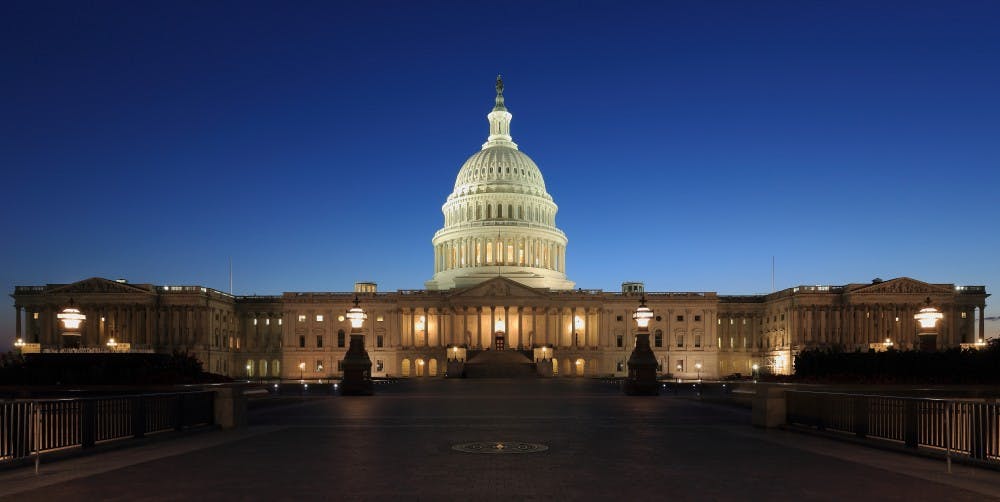My phone would not stop buzzing yesterday. Fox News, MSNBC, CNN, ABC — every news organization was ablaze with the heat of the potential coup.
On the same day that Rev. Raphael Warnock became Georgia’s first Black senator, it was terrifying to watch the Confederate flags litter our Capitol building. As thousands of anxious Americans watched the events unfold live from across the country, it would be an understatement to say that our political scene looked dire. Not only has sitting President Trump succeeded in attacking the truthfulness of journalism, but he has nearly destroyed the very fundamentals of democracy.
Times like these feel hopeless, jarring, and desperate. Our country is plagued by a failure — a failure to recognize and acknowledge our common humanity.
Barred behind our screens by the pandemic, our vantage point has become increasingly limited. The people whom we see only through the media have become two-dimensional and dehumanized, and it has become increasingly difficult to empathize with the humans on the other side.
Two things are clear: what happened yesterday was abhorrent, and there must be a change. And that change, while ostensibly simple, is terribly hard: we must acknowledge our common humanity, regardless of political belief, and work to mend a political relationship so fractured that lives are risked on both sides.
And even if we feel that acknowledging the humanity of these protestors is not worth our time, we cannot ignore them. Though it is hard to believe, all of them, rioters or not, are people. It is a painful fact at the moment, but it is a fact that we must carry with us if we hope to restore this country.
How might we do this? Through stories.
Stories have remarkable influence. Take, for example, the Prospect piece “At home, I live in fear. Princeton offers no safe haven” — a November article in which a gay student described the struggle of living with a homophobic family after being denied emergency housing. Soon after this student courageously told their story, real change occurred, with the University altering its emergency housing policy to include those in similar situations.

Yet the impact of such pieces does not end there. When we exchange these stories, we are better able to empathize with and have compassion for those around us. And this effect is priceless.
This is why, at The Daily Princetonian, we have extraordinary power; we choose whose voices to raise, which communities to cover, and which problems to address. And with that comes a deep responsibility of diligence and intentionality. As a part of this responsibility, ensuring diversity and inclusivity among the voices we raise is paramount.
Diversity is sometimes portrayed at organizations, both in and out of the media world, as a side project, or something to which we commit ourselves in addition to what we already do. Yet for journalism — good journalism — diversity is absolutely fundamental. Without developing the habit of asking who we are including and excluding from the conversation, we forsake our integrity and our mission as journalists and as people.
Starting this semester, we will establish the inaugural Diversity, Equity, Inclusion, and Belonging (DEIB) Board. This Board, building upon work in previous years, will bring together representatives across the ‘Prince’ to think critically about our practices, whether that be how we cover certain campus communities or whose faces we choose to include in our illustrations.

We will also launch our new Content Strategy team, which will work to look at our content more holistically, identifying the communities and individuals we have covered inadequately or failed to cover at all.
We recognize that the ‘Prince’ should always be seeking to improve in this sense: diversity is not something that can ever be “achieved” but is instead a constant process. It is up to us to shift our organization toward a path where future generations can continue to actualize this vision. It is up to us to delve into the stories and lives of those around us, even when they differ drastically from our own. And, as Jon Ort wrote in his final letter as Editor-in-Chief, it is up to you all, as our readers, to hold us accountable when we miss the mark.
Storytelling is not just the job of a journalist; it is the job of a human being. No matter our profession, it is imperative that we commit ourselves to listening to and engaging with the stories of those around us. Argument, even when it is ostensibly logical, does little to change the minds of our opponents. Instead, it is mutual acknowledgment of our common humanity and a willingness to see the multidimensionality of those around us that changes minds. Sharing our stories is the most potent medium to accomplish this mission.
As we approach this unprecedented year, I urge you, now more than ever, to listen more closely to the stories of your fellow Princetonians and to work all the more to elevate the stories of those who have gone unheard for far too long.
If the events of yesterday tell us anything, it is that this mission has never been more crucial.
Emma Treadway is the 145th Editor-in-Chief of The Daily Princetonian; this letter represents her views only. She can be reached at eic@dailyprincetonian.com.








